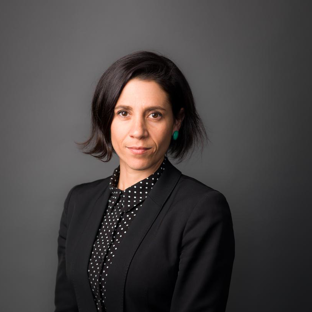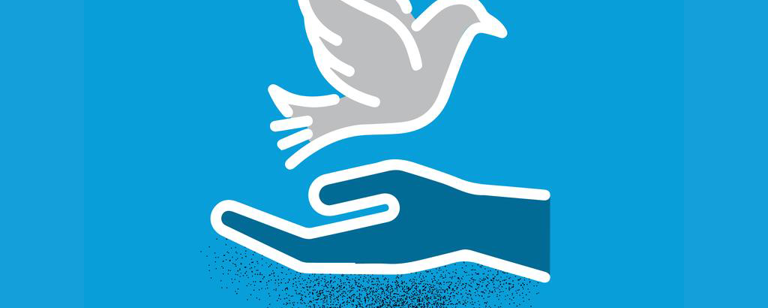In December 1948, the United Nations adopted the Universal Declaration of Human Rights, setting out a standard of basic rights and freedoms inherent and inalienable to all human beings across the globe.
Seventy years later, we’ll look back on this revolutionary moment and reflect on the status and progress of human rights today. Our panel of experts will discuss some of Australia’s human rights failings – the over-imprisonment of Aboriginal and Torres Strait Islander people and offshore detention for asylum seekers, in particular – within the context of the global progress towards improved human rights.
Who are the critics, and what are the criticisms, of the theoretical and legal framework of human rights? And what does it mean when our elected representatives openly flout our obligations?
This event will be Auslan interpreted.
Presented in partnership with the Human Rights Law Centre.
Featuring

Ruth Barson
Ruth Barson has worked to advance the human rights of people enmeshed in the criminal justice system for over a decade. She leads the Human Rights Law Centre’s work advocating for the rights of Aboriginal and Torres Strait Islander peoples, and children and adults in jails across Australia.
Ruth’s recent work includes High Court challenges to excessive police lock-up powers; and state and territory Supreme Court challenges to unfair imprisonment and detention laws. Ruth has also led the Centre’s advocacy in relation to youth justice; deaths in custody; inhuman conditions in detention; and racial inequality in the criminal justice system.
Before joining the HRLC, Ruth worked as a senior policy lawyer at the Centre for Innovative Justice where she delivered a comprehensive report on reforming the criminal justice system’s response to sexual assault. Prior to this, Ruth spent over four years working with the Aboriginal Legal Services in Western Australia and in the Northern Territory where she focused on youth justice and prisoner rights. She has also worked as a criminal defence lawyer with Victoria Legal Aid and a legal advisor to government.
Ruth’s international experience includes supporting the work of the Supreme Court Chamber of the Extraordinary Chambers in the Courts of Cambodia – the United Nations backed court responsible for prosecuting senior members of the Khmer Rouge. She has consulted to Open Society Foundations on strategies to reduce the risk of torture and mistreatment in police custody and received a scholarship to attend Open Society Foundations’ Strategic Human Rights Litigation summer school.
Ruth has a Masters of Laws (with a focus on criminology) from the University of Sydney and a Masters of International Human Rights Law from the University of Oxford. She is currently completing a community research fellowship with the University of Melbourne where she is investigating the over use of solitary confinement in Australia.
Ruth is on the board of the Women’s Legal Service Victoria and is a member of the Law Institute of Victoria’s Human Rights Committee.

Nyadol Nyuon
Nyadol Nyuon is a commercial litigator with Arnold Bloch Leibler and a community advocate.
She was born in a refugee camp in Itang, Ethiopia, and raised in Kakuma Refugee camp, Kenya. At eighteen, Nyadol moved to Australia as a refugee. Since then she has completed a Bachelor of Arts from Victoria University and a Juris Doctor from the University of Melbourne.
Outside her work, and through the experiences of her family and community, Nyadol has developed an interest in issues concerning human rights, multiculturalism, the settlement of refugees and those seeking asylum. She has volunteered extensively in relation to these areas has worked with governmental and non-governmental organisations.
In both 2011 and 2014, Nyadol was nominated as one of the hundred most influential African Australians. She is currently a board member of the Melbourne University Social Equity Institute.
In terms of advocacy, Nyadol has presented at various conferences and forums on issues impacting the settlement of African Australians in Victoria and Australia in general. She regularly appears in the media, including recent appearances on the ABC’s The Drum and as a panellist on Q&A.
Hugh de Kretser
Hugh de Kretser is the Executive Director of the Human Rights Law Centre. He has worked on family violence, sexual assault and criminal justice issues for over a decade across his current role and previously as Executive Officer of the Victorian Federation of Community Legal Centres (2007–2013) and Manager of the Brimbank Melton Community Legal Centre (2004–2007).
Hugh is a Director of the Victorian Sentencing Advisory Council and was a Commissioner of the Victorian Law Reform Commission from 2008–2012. He is on the Governance Committee for knowmore, the national service providing legal help for people navigating the Royal Commission into Institutional Responses to Child Sexual Abuse, and is a White Ribbon Ambassador.
Damian Griffis
Damian Griffis is a descendant of the Worimi people of the Manning Valley in NSW. He is a leading advocate for the human rights of Aboriginal and Torres Strait Islander people with disability. Damian has been a central figure in the establishment of both the Aboriginal Disability Network NSW and the national organisation representing Aboriginal and Torres Strait Islander people with disabilities and their families – the First Peoples Disability Network.
Damian represents FPDN at regional, national and international forums.
In 2014, he won the Tony Fitzgerald (Community Individual) Memorial Award at the Australian Human Rights Awards.
Damian is currently Co-Chair of the Change the Record Campaign, which advocates to shift policies, laws, practices resourcing and attitudes towards the imprisonment of Aboriginal and Torres Strait Islanders.
